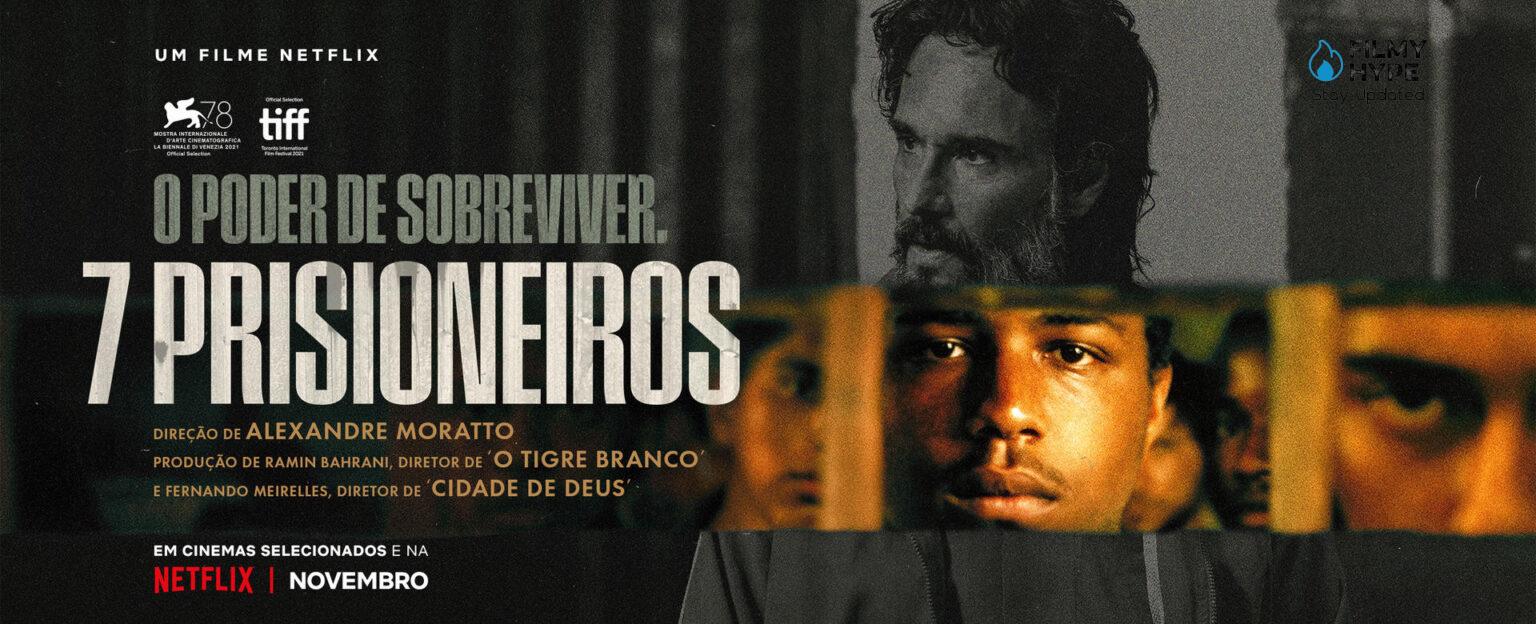7 Prisoners Review: A Modern Drama About Slavery? What Are You Willing To Do To Be Free? 7 Prisioneiros
Alexandre Moratto's feature film, which represents the murky and oppressive criminal substratum of Brazil, lands on Netflix
Starring: Christian Malheiros, Rodrigo Santoro, Bruno Rocha
Director: Alexandre Moratto
Streaming Platform: Netflix (stream from here)
Ratings: 4/5 (four stars)
The Netflix catalog which is enriched month after month, week after week, with series and films of all kinds, from the most varied countries of the world, often gives us the opportunity to appreciate quality products that otherwise – as spectators and lovers of cinema, not as journalists and festival goers – we would never get to see. As we will discover in this review of 7 Prisoners (7 Prisioneiros) a Brazilian film directed by Alexandre Moratto and presented in the Orizzonti Extra section of the last Venice Film Festival, we are faced with a film capable of striking us deeply, which tells us of a distant reality – that of Human trafficking, so widespread in countries like Brazil – but still capable of touching deep and shareable chords by all. In short, a story that perfectly incorporates the glocal philosophy much sought after and appreciated by Netflix for its titles, that is to give a strong attention to products that are framed in well-defined local realities, but that are capable of attracting a very large international audience.

7 Prisoners Review: The Story
At the center of this story we find Mateus (Christian Malheiros), a young man raised in the vast and remote Brazilian countryside by a single mother, together with two sisters. The young man would like to stop working in the fields and find a good job, so as to help his family in constant economic difficulty: for this reason, when Gilson (Maurício de Barros) makes him an attractive job offer that would make him leave home for a metropolis like Sao Paulo, where he would earn enough to allow his mother not to break her back, the boy willingly accepts. Together with four other peers, Mateus leaves for Sao Paulo but, once he arrives, he will soon realize that the reality that awaits them is very different from what they had imagined.
Mateus and his companions in misfortune are effectively kidnapped by the owner of a scrap dump, Luca (Rodrigo Santoro), who confiscates his documents and cell phones, forcing them to live in a real hovel and work from morning to night to extract copper from cables and making working parts from broken appliances and cars. The four initially try to escape, but they will be stopped by the violence of their jailers (obviously armed) and by the threat – reiterated by the corrupt police who collaborate with Luca and his family – that they would harm their families. There is no way out, therefore, for Mateus and the others (soon to be joined by three other “prisoners”, the seven of the title), who are swallowed up by a cold and inhospitable metropolis, interested only in exploiting them as much as possible. Mateus, however, understands that the only way to improve his condition is to curry favor with Luca, somehow going over to the side of the enemy. But what Mateus doesn’t realize is how much of himself he will be forced to question, and how much he will be willing to do and accept in order to be free and keep the people he loves safe.
7 Prisoners Review and Analysis
What makes Moratto’s film so interesting is not just the fact that it shows us a reality, that of human trafficking, which is so present and widespread in countries like Brazil (in addition to the guys who work in the landfill, we will meet workers from huge fabric factories , but also girls forced to sell their bodies), which from our perspective of “well-being” seems almost impossible to us, relegated to another time not in 2021 in which we live, but also the fact of telling us about it in an extremely multifaceted and rich in nuances. On the screen we do not find a clear division between “good” and “bad”, but the more we proceed with the vision the more we realize how blurred the boundaries are: on the one hand we have Mateus, who makes utterly selfish choices to protect himself and the people he loves, choices that – as the film makes us understand – perhaps we too would have taken if we had found ourselves in his place; on the other there is Luca, who comes from a family situation similar to that of his “prisoners” and in order to emancipate himself (and protect his family) he has become an unjust and cruel master.
But in a world like the one they were born in, is it possible to make different choices? Live a different life from the one you are hopelessly destined for? And it is here that Moratto’s film no longer points the finger only on his characters, and on their life path, but on the rest of the world, which is seen as a machine that crushes the voices of people like Mateus and allows horrors like slavery (in all the different forms that are shown to us) to continue to happen. Perfect for giving life to this story Christian Malheiros and Rodrigo Santoro, capable of interpreting extremely multifaceted and complex characters, for which, however, we are able to empathize.
A system, the one represented in 7 Prisoners, which unfortunately is not properly investigated, thanks to a not always correct management of the various elements of reflection of the film, which are so many, but which sometimes remain too sketchy. Part of the problem is certainly also derived from the actual length of the film – an hour and a half – which does not give the possibility of further study on a purely practical level.
Having said that, on the directorial front, there is particular attention in depicting the conditions of imprisonment and suffocation experienced by the protagonists in the best possible way, with the camera that very often lingers on the exact same actions that the characters perform in an alienating and disturbing way.in a dirty work environment, lacking in security and possible glimpses of freedom. In addition to this, everything that happens outside the small and closed place of detention of the Prisoners is clearly highlighted and differentiated from this scenario.
The Final Words
7 Prisoners is a well-crafted drama that draws on extraordinary performers (notably Rodrigo Santoro and Christian Malheiros) and a mature, layered thematic framework that provides a timely critique of slavery and labor exploitation in Brazil. The direction and the screenplay take advantage of a sudden change in the protagonist’s point of view on the situation that manages to diversify the entire project. The length of the feature film, which is expected to be around 90 minutes, does not however guarantee a necessary in-depth study of some issues left too sketchy and which would have ensured greater content cohesion.







One Comment